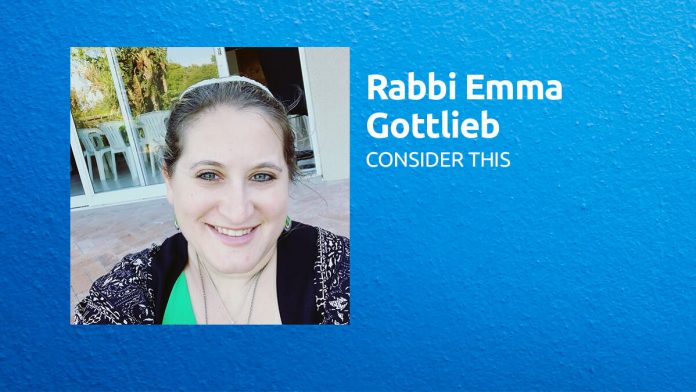By Rabbi Emma Gottlieb (she/her)
As some of you may be aware, at this time each year, the Progressive and Orthodox Torah-reading calendars in the diaspora fall out of sync with one another.
Why is this? Over Pesach, we read from the Book of Leviticus (Vayikra), about the Feast of Unleavened Bread. The Torah describes the first and seventh days of the feast as sacred occasions, when one is not to work at their occupations (i.e. Chag). So maybe the real question is: If the Torah specifies that Passover is supposed to last for seven days, why then do some Jews celebrate it for
eight days?
Rabbi Jill Perlman teaches that, “The answer lies in both how the Hebrew calendar is determined as well as in tradition. The Hebrew calendar is based on the moon. In ancient times, the beginning of a new month was determined by direct observance of the new moon and only declared when the Sanhedrin made this observation official. While getting the word out was not difficult in much of the land of Israel, it would take much longer for distant communities to know officially when to begin counting the month and therefore when holidays within that month should fall. Due to this uncertainty, it became the practice for those outside the land of Israel to observe two days of each holiday to cover themselves in case they were wrong. (Yom Kippur is the major exception due to the hardship that two days of fasting would produce.) This two-day holiday observance remained in place for the sake of tradition even after the calendar became mathematically fixed.”
Today, most Orthodox and traditional Jewish communities outside of the land of Israel still observe Passover with an extra day (making eight days of Passover rather than the biblical seven), while those in Israel observe Passover for seven days. Reform and Progressive Jews follow the practices of those in Israel, adhering to the fixed mathematical Hebrew calendar, thus observing Passover for seven days.
But what does all of this have to do with the Torah-reading cycle? For those who celebrate eight days of Pesach, the extra day bumps the weekly Torah portion ahead by a week, and this is what causes our reading cycles to fall out of sync with one another. The two cycles will come back into alignment in June.
Temple Israel www.templeisrael.co.za
• Published in the PDF edition of the June 2022 issue – Click here to read it.
• To advertise in the Cape Jewish Chronicle and on this website – contact us on 021 464 6700 ext. 104 or email advertising@ctjc.co.za. For more information and advertising rate card click here.
• Sign up for our newsletter and never miss another issue.
• Please support the Cape Jewish Chronicle with a voluntary Subscription for 2022. For payment info click here.
• Visit our Portal to the Jewish Community to see a list of all the Jewish organisations in Cape Town with links to their websites.
Follow the Chronicle: Facebook | Instagram | Twitter | LinkedIn











